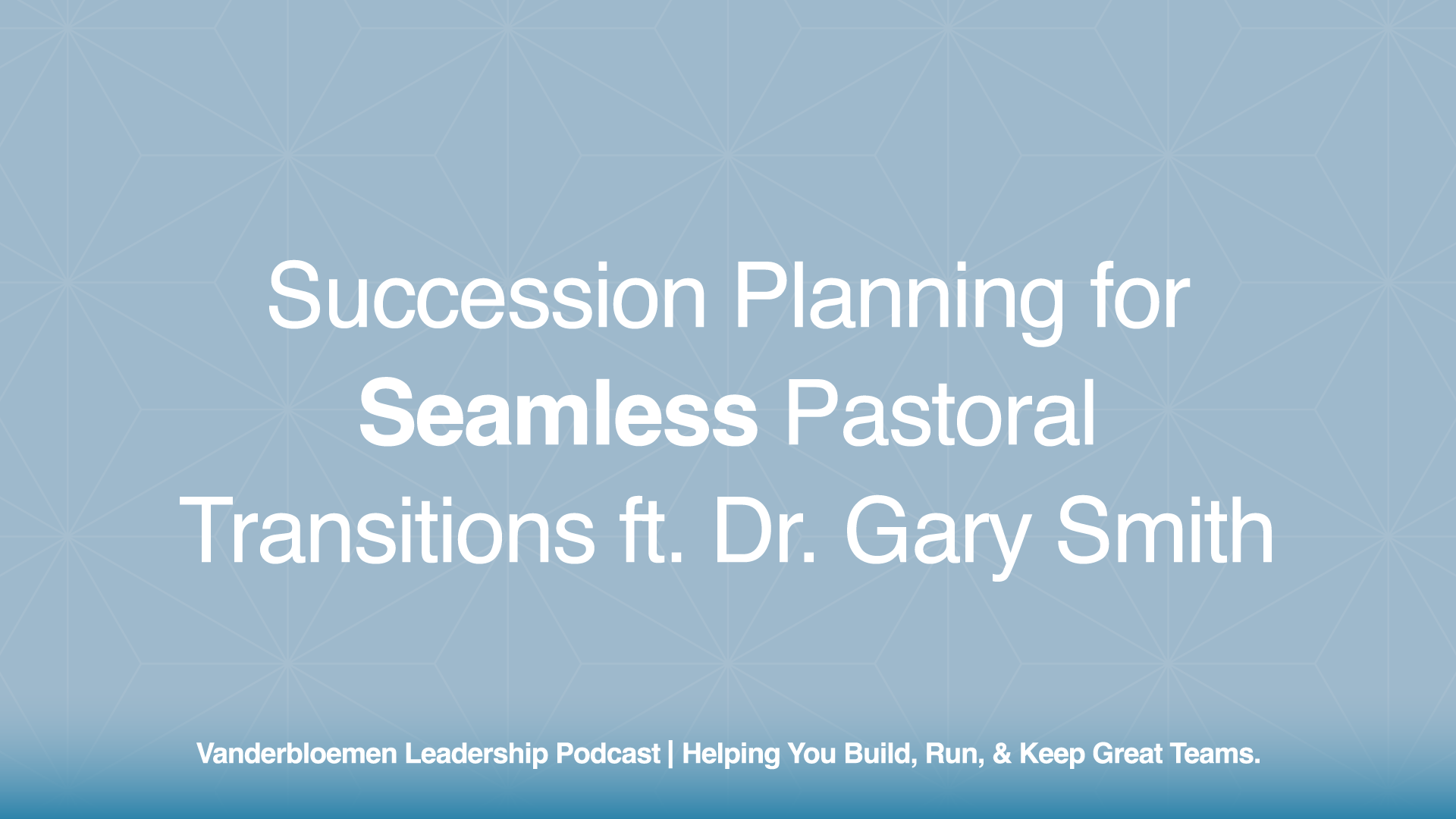Great team culture is one of the biggest benefits you can offer your church staff. More and more, the culture of a workplace is a deciding factor when qualified candidates decide whether or not to take a job. It’s important to remember that the culture of your church staff changes with every hire you make, making onboarding a crucial part of your staffing process.
Below are seven keys to assist you in making sure your onboarding process is effective in bringing on new people and ensuring their success.
1. Clearly cast vision.
An employee can’t be expected to uphold the vision of an organization if they don’t know it well. Clearly articulate your church’s vision and how you are working to accomplish it. It needs to be something that every member of your staff knows instantly when asked; something they speak about to other staff members because it’s constantly in the front of their mind.
At Vanderbloemen, we have an entire portion of our weekly team meeting dedicated to highlighting how our company is living out our mission and values. It’s a great, simple way to bring the focus back to what matters to our company and culture.
2. Communicate, communicate, communicate.
Overcommunicate if necessary, but be sure you’re clearly explaining every small detail to new hires. Especially if you’re in a position to train new people, it’s likely you’ve forgotten what it’s like to have zero reference for anything that goes on in your church. Be aware of people and their level and ability to jump into new things quickly, and remember that even if someone acts like they know what’s going on, they may not.
I like to ask every new employee after they get comfortable in their role what they had to pick up on the fly because no one told them, and add that to my onboarding training with new hires. You’d be surprised at some of the things people didn’t know!
3. Set goals.
Clearly explain and set goals for the new hire – goals that will challenge them but will also be fun. This will help set a trajectory for the person to keep them focused and hopefully also act as an encouragement to them as they learn. Find out what motivates the people on your church staff and help them leverage that to do their best work, learn quickly, and enjoy their time on your team.
4. Provide clear parameters.
Nothing is more terrible than thinking you’re doing your job well and then finding out there’s a whole slew of things you were supposed to be doing but never knew about. “Other duties as assigned,” is a great and often necessary part of every job, but make sure you’re actually assigning these duties. This seems obvious, but taking specific precautions to do this well will avoid difficult conversations down the road.
5. Immerse them in culture.
Immerse them in your church staff culture – things that have impacted the life, history, and heart of your organization. Especially in churches, the original heart and intent behind an organization’s beginning is crucial to what it will continue to be. You should be hiring with your culture in mind, but even after you make a great hire, you have to continue to instill culture in them for it to be successful long-term.
Over six years ago, Vanderbloemen Search Group started on a card table with one file box. We still have both items to remind us where we came from, and we reference them often – the file box actually made an appearance in a team meeting recently. We take every new hire to the restaurant across the street from our old office, so they can see where we came from and how that shaped who we are. History and heritage is important. Don’t let your church’s history, and the history of God’s goodness to you, become old news.
6. Speak highly of everyone.
As the person onboarding new people, you are the first frame of reference of the culture of the organization that each hire will have. You get the terrifying and wonderful duty of representing your organization – of being a safe, trustworthy place for people to ask questions and figure things out. You’ll set the tone of how they look at the organization overall, so it’s imperative you leave any of your personal baggage (if you have any) at the door. If not, you’re setting this person up for frustration or bias from day one, which is a huge injustice for everyone involved.
7. Involve families.
Families getting involved and fitting into your church and community is a huge part of your new hire making it in your organization. Especially if you’ve moved a family to your city, away from their previous support groups, it’s important for you to consider this heavily. Take them out to dinner and introduce them to your family, or set them up with a family in the church with children of a similar age. Take the personalities of the family into consideration – staff dinners or mixers are great for extroverts, whereas an introverted spouse will probably prefer a less intimidating environment.
There are so many nuances of onboarding that are helpful to consider. The most important thing is to simply put yourself in a newcomer’s shoes and thoughtfully consider how to make the transition easier for them.


